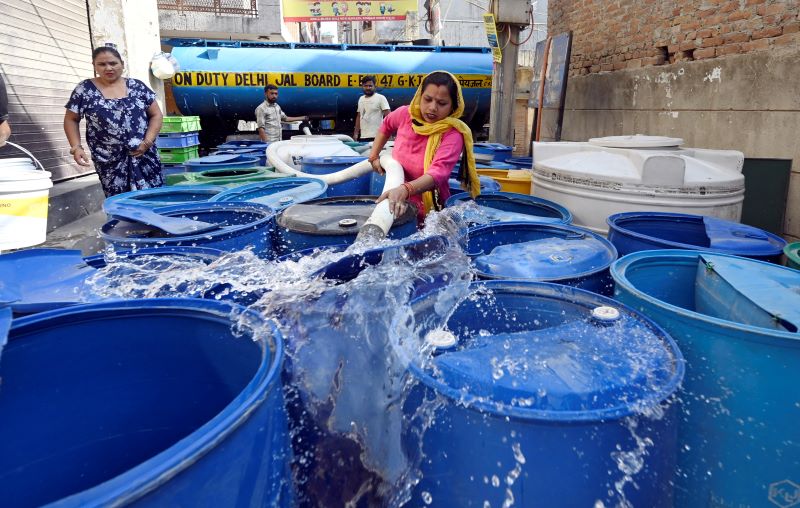Comment: At mid-year UN talks, negotiators have achieved little to get more help to those struggling with fiercer floods, cyclones and heatwaves in South Asia
Partha Hefaz Shaikh is Bangladesh policy director for WaterAid.
Thousands of country representatives have spent the last two weeks in Germany at the UN Bonn Climate Conference, marking the mid-year point to the biggest climate summit of the year: COP29.
But despite being a core milestone each year for global climate discussions, there is troublingly little to show for it. And with less than six months before COP29 – and after years of negotiations – there has been a shameful lack of commitment on delivering for those on the frontline of the climate crisis.
Climate finance and adaptation play imperative roles in ensuring communities are able to thrive in the face of unpredictable and unforgiving weather patterns. And while both topics have been heavy on the Bonn agenda, finance negotiations so far have failed to really consider those living with climate uncertainty right now.
WaterAid has been on the ground at the Bonn talks, calling for robust water, sanitation and hygiene indicators to flow directly through key climate adaptation frameworks, especially the Global Goal on Adaptation and the Loss and Damage Fund – both of which will change the course of the future for those living on the frontlines of the climate crisis.
Support lacking for those on the frontline
Yet countries at Bonn have hit a roadblock on the Global Goal on Adaptation (GGA), with discussions struggling to go beyond a shared acknowledgement of the value of including the support of experts to progress on areas of concern. Progress on GGA targets remains stagnant as parties grapple over country-specific concerns instead of coming to a collective outcome, with less than two days left of the conference.
Meanwhile, the most recent talks on the Loss and Damage Fund failed to consider the urgency of the escalating climate crisis at hand and the scale of financing needed to ensure frontline nations can recover and rebuild from impacts of climate change.
North Africa’s disappearing nomads: Why my community needs climate finance
The new collective quantified goal on climate finance (NCQG) – a new and larger target that is expected to replace the current $100bn climate finance goal – is also high on the Bonn agenda. Many core elements of this new climate fund goal are yet to be agreed.
WaterAid is calling for the NCQG to have sub-goals for adaptation and loss and damage, as well as for the finance pot to have a direct channel to vulnerable communities so they can be involved in ensuring the funds go to where the support is most needed.
Too much or too little water
Whilst conversations at Bonn have been lukewarm, the climate crisis has remained red hot. Right now, countries around the world are watching it unfold in real time. From flooding and cyclones to drought and deadly heatwaves, communities are dealing with the terrifying reality of living with too much or too little water.
Southern Asia is being exposed in particular to a dangerous and chaotic cocktail of unpredictable weather, making life unbearable for those on the climate frontline.
In late May, Cyclone Remal hit coastal parts of southern Bangladesh with gale speeds of up to 110km/h causing devastation across the country for 8.4 million people, leaving many without power, damaging crops and making tube wells and latrines unusable.
Meanwhile, record temperatures were recorded in Bangladesh through April and May where temperatures soared above 43 degrees Celsius, scorching 80% of the country and leaving thousands without power.
At the same time, Pakistan witnessed its wettest April since 1961, with the south-western province of Punjab experiencing a staggering 437 percent more rainfall than usual, fuelling the malnourishment of 1.5 million children and damaging 3,500 homes.
Water infrastructure key to adaptation
Water, sanitation and hygiene equip communities like those across South Asia with the ability to adapt to climate change, protecting livelihoods and farms. Thes
Read More

